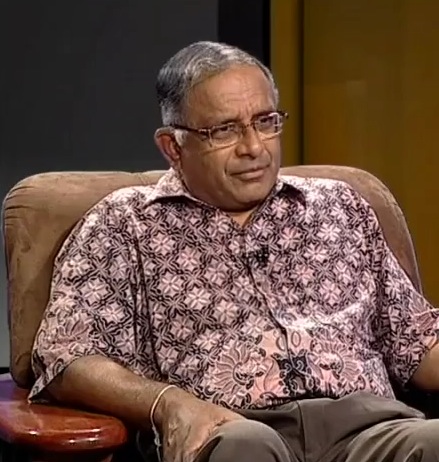
Dr. Jayampathy Wickramaratne is a President’s Counsel in Sri Lanka and has also served with the Sri Lankan government in various capacities as Senior Adviser to the Ministry of Constitutional Affairs and member of the Sri Lankan Law Commission. He holds a PhD in Human rights and a Master of Public Administration from University of Peradeniya, Sri Lanka. His areas of expertise include Constitutional law, Human Rights, Administrative and Criminal law.
We began our conversation on the need for a political solution after the end of war and the ignominious fate of the APRC (read the APRC’s final report, released exclusively on Groundviews). Jayampathy categorically notes that the political leadership today hasn’t shown any progressive movement towards a political solution. I then asked him to juxtapose and critique public apathy over the passing of the 18th amendment to what he had observed from 1994 to 2004 – a high-degree of support for power-sharing by as much as 50% of the voters. This became a leitmotif of our discussion, with Jayampathy later on noting in detail the marked contrast between the rushed introduction – with almost zero public debate and awareness – of the 18th amendment with constitutional reform processes he had been part of in the past.
I asked him about what led to the UNP burning the constitutional proposals in 2000 fashioned under former President Chandrika Kumaratunga. Jayampathy, noting that the nearsightedness of the UNP at the time “contributed in a big way” to the constitutional crisis in Sri Lanka today, also went on to blame the PA government itself.
Jayampathy talked about the nature and introduction of the 18th amendment and how it seriously undermines the 17th amendment, the crisis and significant degeneration of the Leftist parties in politics and rumours at the time of the interview that the 13th amendment may also be amended in a manner detrimental to its spirit and form.
When asked as to what can be done to stem the rapid erosion of Sri Lanka’s constitutional rule, Jayampathy notes at the end of the interview that there is no option but to live in hope, continue to talk about key issues and not lest interest wane.
Also see this short video interview done with Dr. Wickramaratne in 2008 on the APRC and 13th Amendment.
